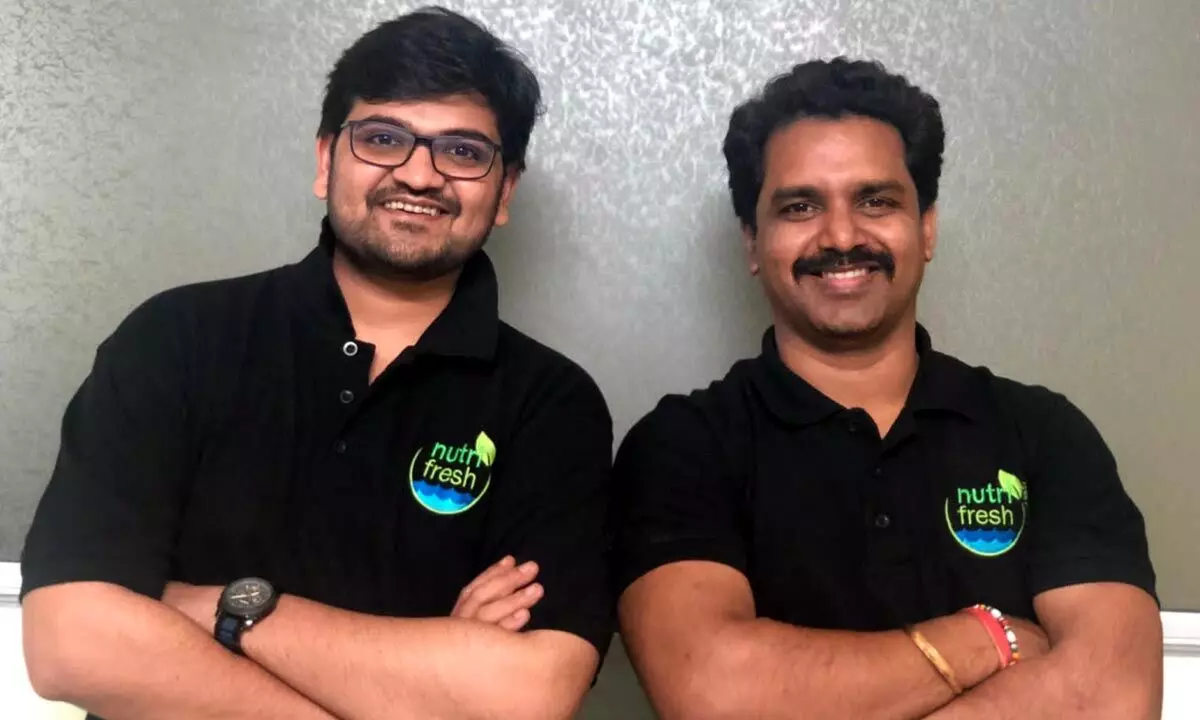Increased Demand Of Hydroponic Grown Products From HORECA Industry, D2C: Nutrifresh

Increased Demand Of Hydroponic Grown Products From HORECA Industry, D2C: Nutrifresh
Hospitality and tourism segment has opened its doors for the travellers once again, after a prolonged period of two years due to Covid-19.
New Delhi: Hospitality and tourism segment has opened its doors for the travellers once again, after a prolonged period of two years due to Covid-19. With the surge in tourism, hotels and restaurants are turning to hydroponic farms to purchase vegetables. Hans India spoke with Sanket Mehta, Co-founder of Nutrifresh, to know the scope of hydroponic farming in the commercial segment over personal consumption.
Explaining the demand trends from the southern states of the country, Sanket says that hydroponic grown vegetables of Indian varieties are growing more popular. He says that the major demand of their products, particularly in southern states, include coriander, spinach and fenugreek. Sanket also says that due to the consistent rain in the regions, the production of the vegetables in the open field cultivation is deteriorating and the quality is not upto the mark. This has led to an increase in demand for hydroponic grown vegetables.
The company is in operation in Pune, Maharashtra while distributing in both Pune and Mumbai. From the mid of June, the company has also started distribution in Gujarat's Ahmedabad and Baroda and in Bengaluru, Karnataka.
"Since the pandemic situation has been controlled, people have started travelling to various states, various places. There is a sudden surge in terms of the Horeca industry i.e., hotel, restaurants and canteens. So, we are seeing a high demand coming from these areas where people have started travelling and the (food) consumption has increased," Sanket explained.
He also stated that incomparison to last year's trends, in 2022 there will be increased demand in fruity and exotic vegetables such as bell peppers, cherry tomatoes, cucumber and broccoli. The company started its practice in 2014 with sugarcane cultivation and then expanded to open field organic cultivation. In 2019, the company began with hydroponic production.
"We got into the process gradually. Hydroponic is a very cumbersome process. It requires daily maintenance; we have to be on the field 24x7. It requires a lot of attention. So, we decided that before entering into the space of hydroponics, we need to get hands down experience with agriculture," he said.
Sanket has said that the company has initiated to have a franchise model (hydroponic) farm wherein the land and the poly houses owned by a particular individual and the firm sets up the hydroponic infrastructure. The said model, according to Sanket, will be operational in the coming months.
Nutrifresh's first commercial hydroponic farm was set up on a 10-acre space and the initial investment into setting up the infrastructure was Rs. 22 crores. Speaking on the Direct to Consumer (D2C) reach, Sanket says that the company is able to sell directly to its customers because of the quality of the hydroponic produce and the timely delivery. The company claims that it has 15,000 customers and adding 3,000 customers per year.
Sanket believes that with changes in climatic conditions, unpredictable weather, the hydroponic market will see a sharp incline in the coming years and says that in the next 15-18 years the hydroponic products market will be 50 percent of the total produce.














